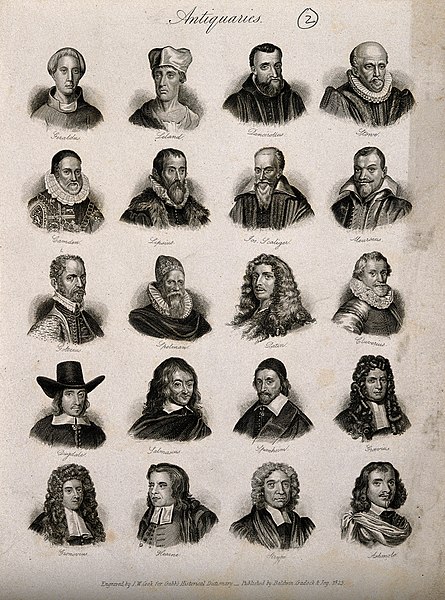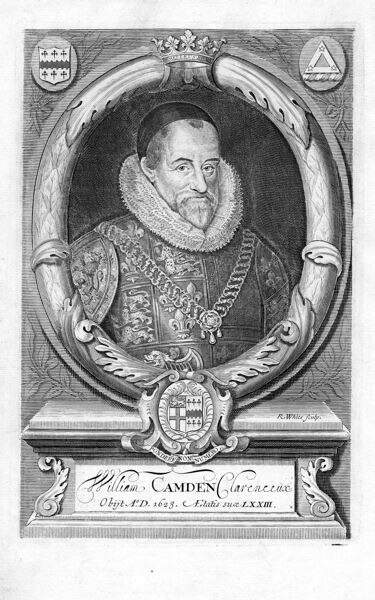Elias Ashmole was an English antiquary, politician, officer of arms, astrologer and student of alchemy. Ashmole supported the royalist side during the English Civil War, and at the restoration of Charles II he was rewarded with several lucrative offices.
Elias Ashmole by an unknown artist (detail), c. 1688, after the portrait by John Riley, below
Ashmole's birthplace in Lichfield
Elias Ashmole by William Faithorne, 1656
Theatrum Chemicum Britannicum (1652), Ashmole's annotated compilation of alchemical poems in English
An antiquarian or antiquary is an aficionado or student of antiquities or things of the past. More specifically, the term is used for those who study history with particular attention to ancient artifacts, archaeological and historic sites, or historic archives and manuscripts. The essence of antiquarianism is a focus on the empirical evidence of the past, and is perhaps best encapsulated in the motto adopted by the 18th-century antiquary Sir Richard Colt Hoare, "We speak from facts, not theory."
Ole Worm's cabinet of curiosities, from Museum Wormianum, 1655
"Antiquaries": portraits of 20 influential antiquaries and historians published in Crabb's Universal Historical Dictionary (1825). Featured are: Giraldus Cambrensis, John Leland, Guido Panciroli, John Stow, William Camden, Justus Lipsius, Joseph Justus Scaliger, Johannes Meursius, Hubert Goltzius, Henry Spelman, Charles Patin, Philipp Clüver, William Dugdale, Claudius Salmasius, Friedrich Spanheim, Johann Georg Graevius, Jakob Gronovius, Thomas Hearne,
William Camden (1551–1623), author of the Britannia, wearing the tabard and chain of office of Clarenceux King of Arms. Originally published in the 1695 edition of Britannia.
Pit Mead Roman villa mosaic, illustrations by Catherine Downes, engraved by James Basire and presented to the SAL by Daines Barrington








